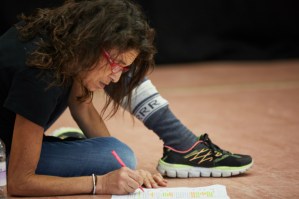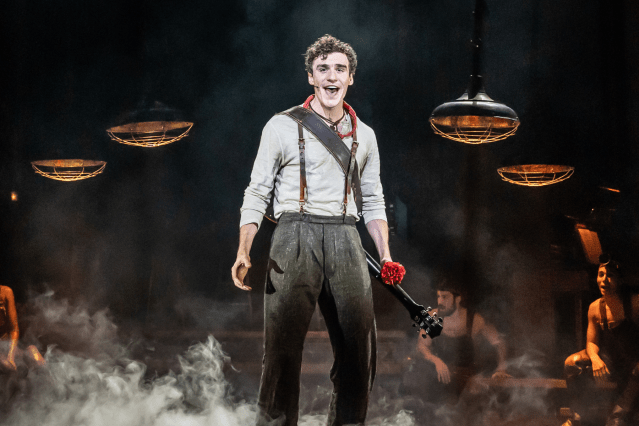Review: The House of Bernarda Alba (Manchester Royal Exchange)
Lorca’s play is staged by Graeae artistic director Jenny Sealey
Written at the height of the Spanish civil war, two months before his death, Federico Garcia Lorca’s all-female play is, at one level, a study of tyranny. Decreeing an eight year mourning period for her late husband, Bernarda Alba seeks to control her five daughters – not just the way they dress, nor their actions, but their thoughts, their words, their feelings and their hearts. She confines them to the house and forbids all male contact.
In Graeae’s production, it becomes impossible to separate Bernarda’s orders from her daughters’ disabilities. Kathryn Hunter wears her arm in a sling and wields a silver-topped cane, and one suspects she projects her own experiences onto her children. Two of them, Nadia Nadarajah’s Angustias and Hermon Berhane’s Adela, are deaf. Philippa Cole’s Amelia wears a prosthetic limb. Their mother’s prohibitions seem, at least in part, protective. Misguidedly so: her blanket ban sees disability first, femininity second and sexuality, not at all. It reduces her daughters. Belittles them.
Hunter’s Bernarda rules, not with an iron fist, but with a beady eye. She is no imposing matriarch, rarely raising her voice, let alone her stick, but rather an all-knowing inquisitor. Interrogating her daughters, Hunter cocks her head back and raises an eyebrow with a schoolmistress’s scepticism. Jo Clifford’s text is clipped and curt, and Hunter cracks her sentences like a whip. She sets the sisters against one another, turns "her little empire" into a surveillance state. "I am watching every step you take," Hunter hisses. "Every single thing you do, I will know about it."
She can’t, though. Folding sign language into her 1988 adaptation, Clifford splinters communication. It shifts the power dynamics – who signs for whom, who’s spoken to and who’s shut out, who gets to speak and who has to keep up – but it also undermines Bernarda. She’s not privy to everything.
Jenny Sealey‘s staging shifts the focus slightly – from the ruler to the ruled. Lorca’s play becomes a study of dissent and disobedience. The five sisters resist, talking of sex in hushed tones, out of earshot. They use sign language, which their mother refuses, almost as code; swapping secrets beneath her nose. The youngest, Adela dresses in defiance – summery green for mourning blacks – but she meets her lover under darkness’s cover at four in the morning. But they betray each other too – out of envy, out of anxiety, out for themselves. It is, all of a sudden, a lesson worth heeding.
Liz Ascroft’s set is eloquent: a circle of chairs on a wooden floor, worn pale underfoot, that suggests a lengthy confinement. All but one are misshapen – one’s double-backed, one’s squat, another is two chairs in one – and all, bar Bernarda’s, are angled askew. Sat upright in her high-backed chair, Hunter keeps each daughter in her sights at once. They, meanwhile, can’t seem to meet her eye.
If Sealey’s staging shows up the play’s patterns, it misses its passions. There’s little of the play’s heat – be it lust, cabin fever or fury – and, for all its fascinations, this is an oddly temperate watch; the last thing that Lorca ought to be.
The House of Bernarda Alba runs at Manchester Royal Exchange until 25 February.













